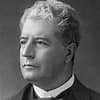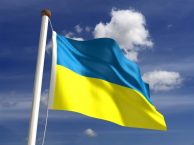
Restrictions Proposed for Lake Eyre Spark Cultural Debate
The proposal from South Australia’s Department for Environment and Water to restrict access to Lake Eyre has ignited a heated debate, with concerns raised about potential divisions along racial lines. Under the new rules, non-Aboriginal Australians, including those of European and Asian descent, may soon find themselves prohibited from accessing the country’s largest lake without the explicit permission of its traditional owners.
 The move has sparked controversy and accusations of cultural discrimination, with critics arguing that it forces Australians to conform to superstitions. The Lake Eyre Yacht Club, for instance, has expressed frustration, citing years of recreational use without encountering any supernatural dangers.
The move has sparked controversy and accusations of cultural discrimination, with critics arguing that it forces Australians to conform to superstitions. The Lake Eyre Yacht Club, for instance, has expressed frustration, citing years of recreational use without encountering any supernatural dangers.
Questions have arisen regarding the beliefs of local Aboriginal communities regarding the significance of the lake. While some support the restrictions, others question the rationale behind them.
This development is part of a broader trend that has seen non-Aboriginal Australians barred from accessing various culturally significant sites across the country, including Uluru, Mt Disappointment, parts of the Grampians, Mt Warning, Mt Arapiles, and Gunlom Falls in Kakadu National Park. The ban on Lake Eyre access is supported by the local Arabana Aboriginal Corporation, led by Bronwyn Dodd, who holds key positions in both Indigenous banking and the Cancer Council.
Dodd’s stance has sparked further debate, particularly regarding her assimilation into mainstream Australian culture while advocating for the protection of culturally significant sites. The proposed restrictions also raise concerns about freedom of speech, as the draft agreement allows the Arabana to deny exemptions for commercial filming and photography if it deems them culturally inappropriate.
Moreover, there are legal questions surrounding the racial ban, especially considering the Federal Court’s 2012 ruling that the Arabana native title over the lake does not exclude others from accessing it.
Ultimately, the proposal to restrict access to Lake Eyre raises broader questions about race relations and the exclusion of a significant portion of the population from accessing iconic parts of the Australian landscape.





Gary Burgess.
More restrictions proposed now it’s Lake Eyre South Australia,
Can we have a referendum for a White fellas voice to parliament, can’t do that? well can we at least have all people claiming to be of Aboriginal descent who collect monies from the Federal, State and local Governments to be DNA
tested and while we are at it we could also audit the hundreds of agencies that have been setup to help disadvantaged indigenous Australians the people that should be looked after.
This exemplifies the reason why we overwhelmingly voted No. The Yes campaign was broadly supported (sorta) in early days but then we rose against the proposal, mightily indignant at the faux lore and cultural values claimed by indigenous bodies through the Courts, the views of a few compliant puppets, articulated by government funded lawyers
Ok, now they can go and live there!
This cultural clause/reasons like all the shutting down the tourist sites in Australia is all part of the big picture. Eventually the tourist industry will not be permitted anywhere in australia, but, hey,….give it 5 or the years and it will all be available again and be run by Aboriginal industry. This is the start of a “land grabbing plot” where eventually all will have to pay to see these Australian Special Features at great expense, and, hello, you probably guessed it, we will all be paying rent for the land we built a house on. Land does not belong to a tribe, it is the land of the Government of a country, the Australian Government. Anything to do with ownership or territory or culture is pretty much mythical and because the mythology of things Aboriginal other than rock art, i believe is made up. If it is to be accepted as being true, it has to be seen, not being a river bank or a tree or a piece if vacant or uncultivated land all should not be allowed to be designated “cultural”. Yes the land is being looked after, l was born here, we respect the Aboriginals , we all should be allowed to walk this country free. Currently we are shaping up to be two peoples living in one country, if we are to survive and live peacefully we should be “one”, one nation, one flag , one government and do away with the things like “welcome to country”, a fraudulent practice and a money grabbing one at that. Our language should be English and if aboriginals want to speak it so the should be allowed, but English is world wide and progressive so going and changing names etc to those living here is a waste of time.